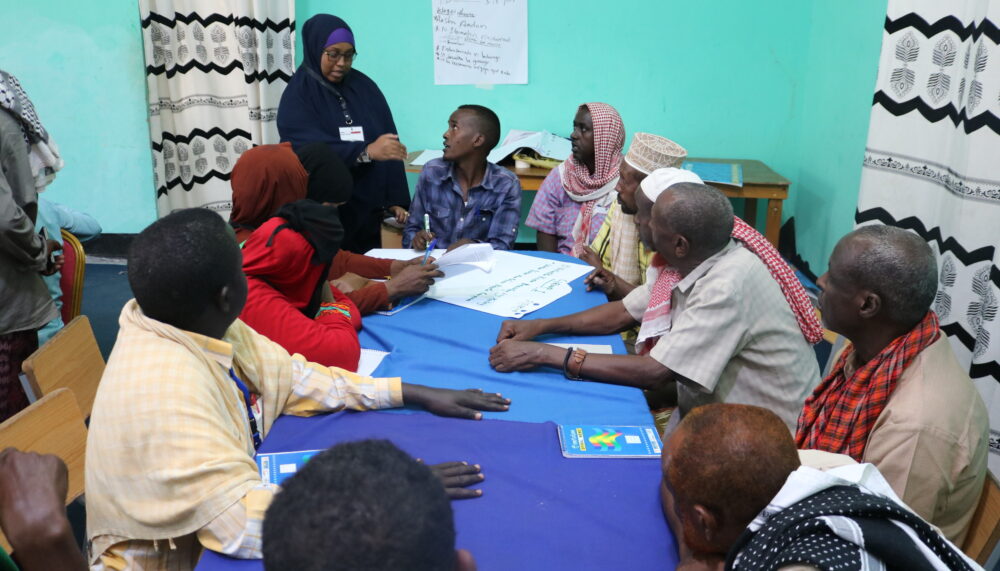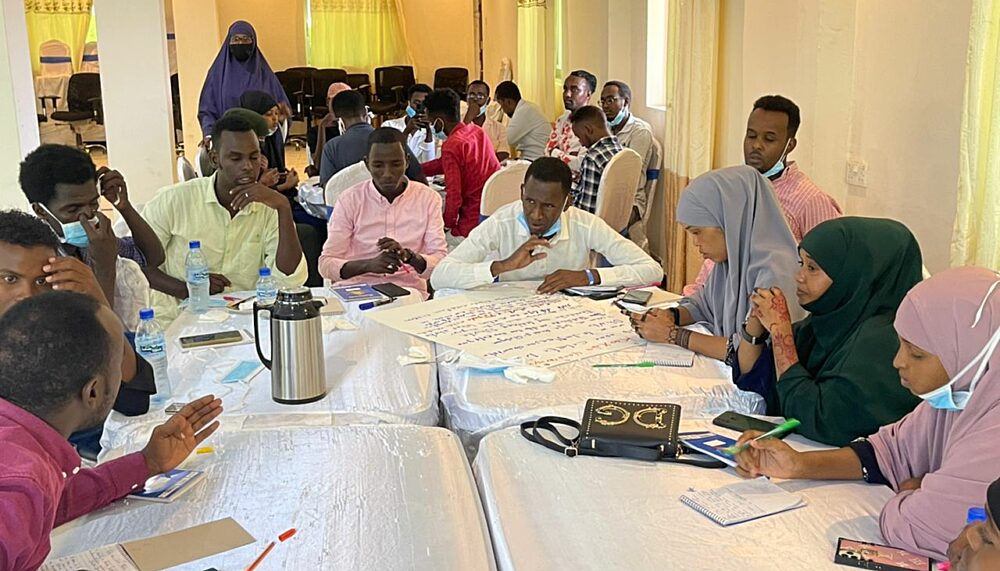FEATURE | 20 Apr 2022
Priorities for the new Somali government
Policy recommendations for after the elections

Looking ahead we have drafted four recommendations for the new Somali government to take into consideration.
The outcome of Somalia’s upcoming elections will determine the path that the country will take on a number of crucial policy issues. At a public event on 15 March 2022, the Berghof Foundation brought together a distinguished group of Somali and international experts to discuss the most pressing issues facing any new Somali government. The current electoral process is the fifth since the formation of Somalia’s first transitional government in 2004. Voting has been complicated by delays, controversies, and the ongoing pandemic, as well as a serious humanitarian crisis caused by drought and a locust plague. Nonetheless, important progress has been made for instance in Puntland, where one-person-one-vote elections were successfully conducted in three districts. Turning to the aftermath of Somalia’s elections, we have summarised the main outcomes of our policy exchange and have drafted recommendations for the new government to take into consideration.
1. Achieve a comprehensive political settlement
A key priority for the new Somali government should be to achieve a comprehensive political settlement. As pointed out by Annette Weber, the European Union Special Representative to the Horn of Africa, a settlement forms the basis for agreement on issues related to the federalization process and the rule of law. It would also lay the groundwork for further efforts of constitution-making and state-building, which would allow the security apparatus to function more effectively. According to Weber, strengthening the Somali security sector to ensure a smooth takeover from the ATMIS peacekeeping mission is another pressing issue, as well as fostering economic growth in order to strengthen the new government’s legitimacy. Michael Keating, Executive Director of the European Institute for Peace, agreed, adding that channelling the Somali population’s outstanding entrepreneurial capacities and creating favourable conditions for further investment would contribute greatly to social, economic and political stability.
Somalia’s climate of distrust and a lack of accountability can only be resolved with a robust political settlement ensuring a clear allocation of power, responsibilities and resources.
Abdulkareem Jama, Executive Vice President and Provost of City University of Mogadishu, Somalia
2. Strengthen trust and participation
Hodan Hassan, Executive Director of Kulan Consulting and former Deputy Director of USAID Somalia, pointed out that a lack of trust in the state and limited avenues for political participation are obstacles for all political processes in Somalia. This was echoed by Abdulkareem Jama, Executive Vice-President and Provost of the City University of Mogadishu, who explained that Somalia’s climate of distrust and a lack of accountability can only be resolved with a robust political settlement ensuring a clear allocation of power, responsibilities and resources. Particular attention must be paid to the process of reaching this political settlement, which will only be considered legitimate if it comes about in an inclusive manner.

3. Address climate change
It is impossible to ignore the effects of climate change in the Somali context, which have reached a critical level in comparison to other regions of the world. According to Keating, a national effort is necessary to address the humanitarian crises already arising from climate change. Considering the fierce global competition over humanitarian funding, the new Somali government should strive to engage the Somali private sector and diaspora in order to foster solidarity over this important issue.
4. Focus on the needs of the Somali population
In light of all of these pressing issues, it is crucial not to forget the needs of the Somali population. Beyond responding to the humanitarian crisis, Somali citizens must be able to exercise their rights to live safely and securely, as well as to have access to the provision of fair and equitable justice. Hassan highlighted that there is a particular need for a strong government action plan to foster inclusive political leadership. It is also imperative to ensure a meaningful participation of women in political processes, and recent progress in girls’ education is an encouraging sign.
Find out more about our work in Sub-Saharan Africa here.
Media contact
You can reach the press team at:
+49 (0) 177 7052758
email hidden; JavaScript is required


